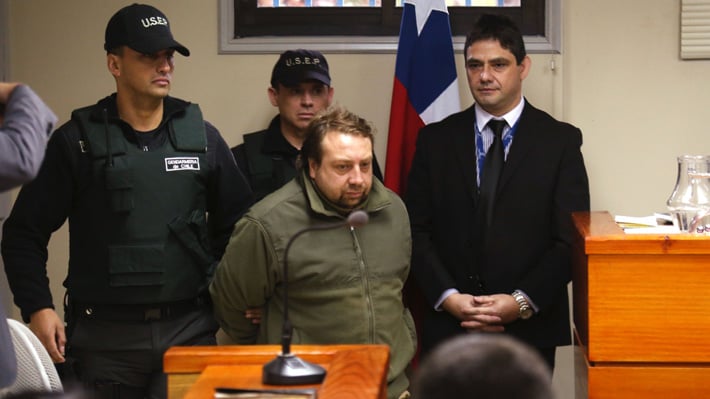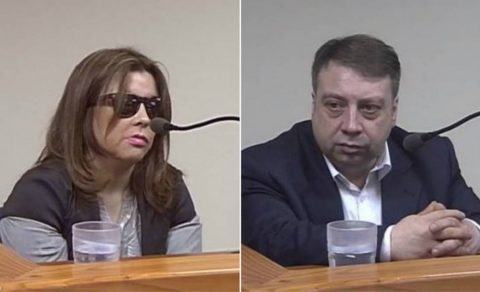Original article: Perito psicológica alerta por «falta de protección real» a víctimas de casos como el de Nabila Rifo
Recently, the parole granted to Mauricio Ortega, the aggressor of Nabila Rifo, sparked criticism over the evident lack of protection for victims in such cases, especially when options for sentence reduction or prison benefits for perpetrators are considered.
Although Ortega’s parole was revoked by the Appeals Court of Coyhaique, which accepted a protection request, the risk persists that he or others with similar convictions could return to the streets.
Paola Dinamarca, a psychologist and professor in the Department of Psychology at the University of La Serena, who specializes in Social Psychology, expressed concern, stating that the situation sends «a very bad signal. The paradoxical and concerning aspect is that the report from the penitentiary authority is negative.»
Previous Sentence Reduction
Following the attack on Nabila Rifo that occurred in the early hours of May 14, 2016, Ortega was initially sentenced to 26 years and 170 days in prison by the Oral Criminal Court of Coyhaique for attempted femicide, serious injuries, and home invasion. However, his sentence was reduced to 18 years in July 2017 after a review of the ruling, dropping the attempted femicide charge and substituting it for serious injuries.
Professor Paola Dinamarca pointed out that «many people were dissatisfied with the length of the sentence he received, as 2 of the 3 judges in the Oral Criminal Court stated that there was no malice, meaning no intent to kill Nabila Rifo,» the academic recalled.
«From criminology, we understand that his intention was not to kill her but to mark her. This means the aggressor wanted to leave Nabila with a lifelong scar so she wouldn’t see her children grow up. This was because she was becoming independent, economically distancing herself from him, and even he had another partner,» explained the expert.
Additionally, the lecturer noted that Ortega «had a prior report of domestic violence and had already seen his sentence reduced due to the Nabila case because intent was not proven. Now, before even serving 9 years, we faced the possibility of him being granted parole, which is alarming, considering he has a perpetrator’s personality structure that won’t change, regardless of any good behavior he might exhibit in prison. This is something he will obviously do.»
Regarding the psychological manifestations Nabila Rifo might experience following this series of rulings, the expert indicated that «there will undoubtedly be hyper-vigilance and the entire central nervous system will be triggered, leading to feelings of helplessness, despair, and fear given the way the judicial system acted. She will be left wondering, ‘What can I expect?'» commented Paola Dinamarca.
Furthermore, the expert elaborated that affected individuals might experience sleep and eating disorders. «Additionally, when a person is subjected to high-stress situations, they can go into shock, which may lead them to want to flee or confront the situation,» emphasized the University of La Serena researcher.
Ultimately, the psychologist added that had Ortega’s parole been finalized, it would have posed a significant danger to Nabila Rifo’s integrity, since «victims will always fear that the aggressor might be released early to act on their threats, a fear that isn’t unfounded, as it’s common for offenders to disregard the protection measures that should keep them away from victims and end up killing them.»
«In Nabila’s case, aside from the latent risk of encountering her aggressor, there is a major psychological impact, as she is undoubtedly left with post-traumatic stress, a psychological aftermath that generally manifests two years later. Although it can be treated, it is something that lasts a lifetime. The control remains with the offender, which makes the victim feel much more insecure and vulnerable,» she added.
Dinamarca also stressed that «it’s vital to remember that Nabila Rifo was subjected to severe public and media mistreatment, facing vilification during her own trial. She carried a tremendous burden of revictimization, and the prosecutor should have called for a re-evaluation of the damage done, yet this did not happen.»

Similar Cases
Delving deeper into this subject, Professor Paola Dinamarca recalled the high-profile case known as “the drum psychopath.” In Ortega’s situation, she noted that “the report from the penitentiary authority is negative,” highlighting parallels with Hugo Bustamante, the murderer of Ámbar Cornejo, who was also released without serving his full sentence.
“The crux of the matter is what information we are conveying to the justice system and what assurance we can give to people if the judicial system is not functioning correctly, which should be ensuring the protection of both direct and indirect victims, meaning families and the broader public,” she added.
When questioned about the Bustamante case, the academic stated, “Thanks to the assessments made, it’s been proven that he has a narcissistic personality structure with psychopathic traits, as he has prior offenses, which is why he was called the drum murderer, given he killed and incinerated his then-partner and her child.”
“Individuals like this exhibit a high rate of recidivism, as they possess fixed personality patterns and structures, meaning they won’t change under any rehabilitation system. Therefore, they pose a significant risk and danger to society,” the specialist insisted.
Continue reading about this issue:
El Ciudadano



